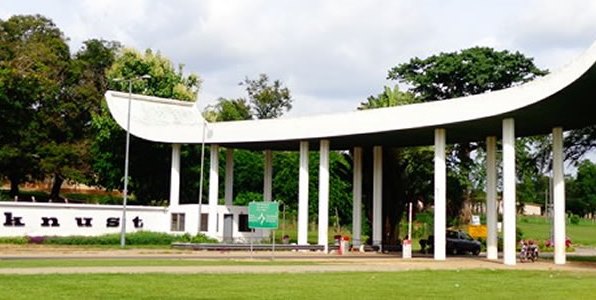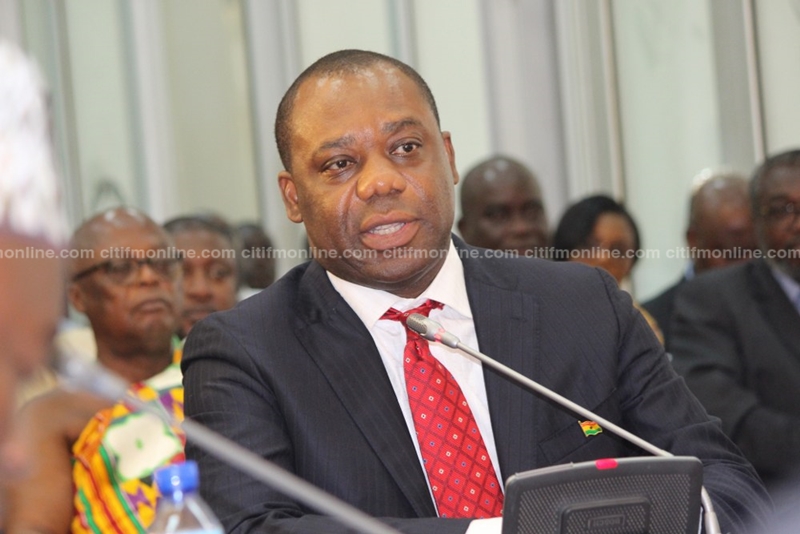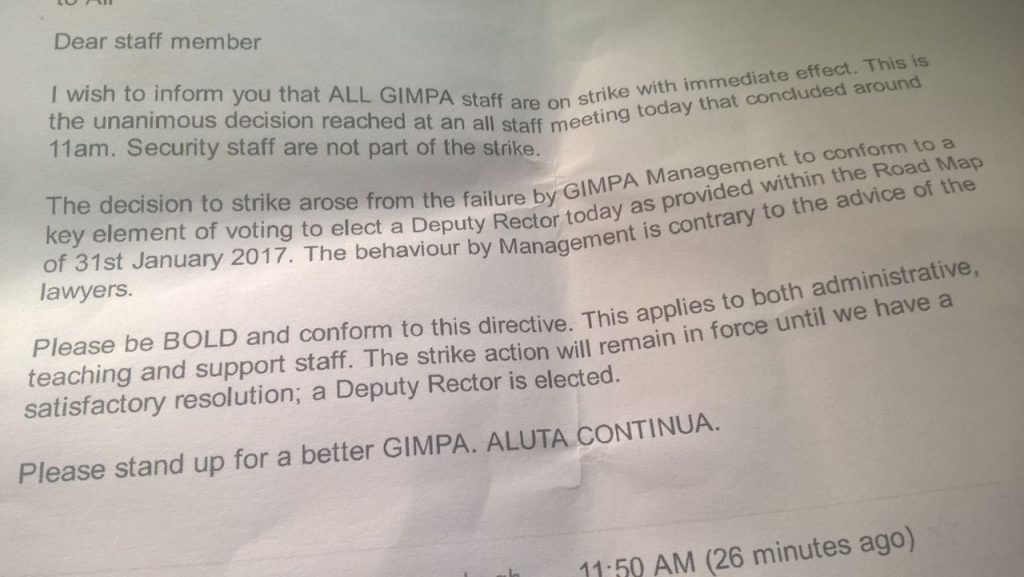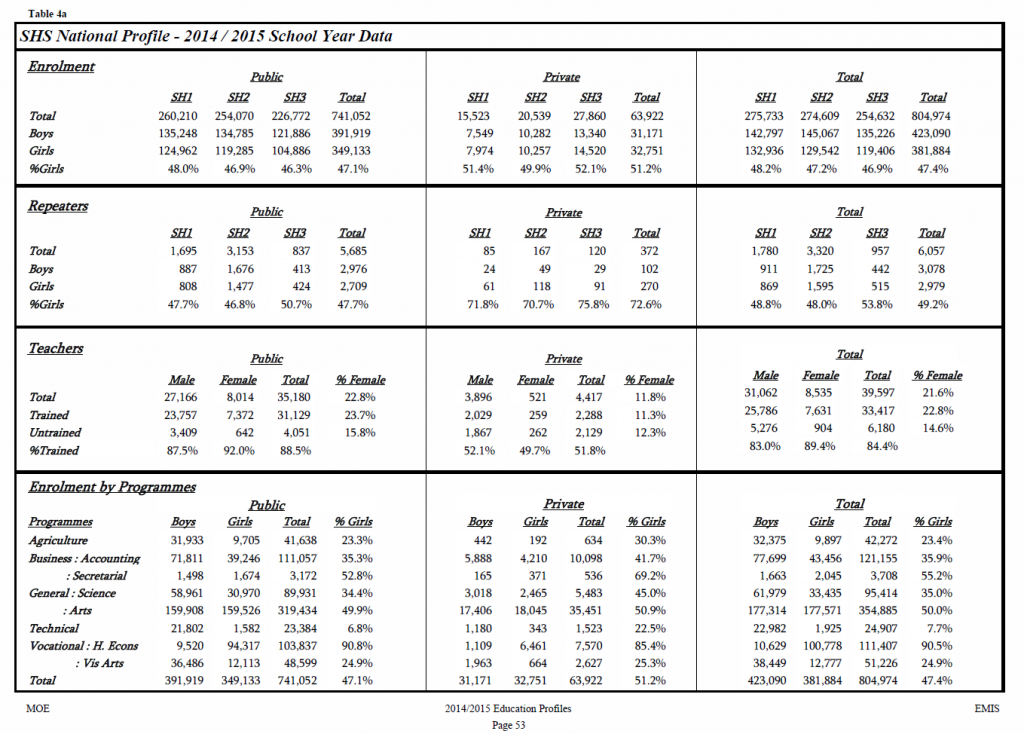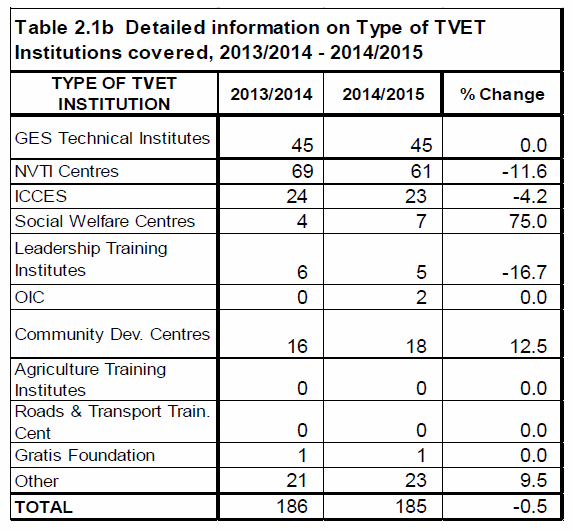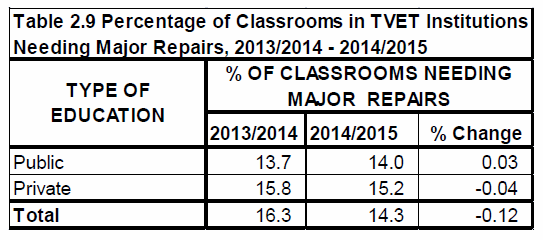I was one of the critics who felt that Ghana didn’t need free Senior High School education, when President Nana Akufo-Addo, then Flagbearer of the New Patriotic Party (NPP) in opposition, started trumpeting the idea ahead of election 2012.
And what was my reason? I just followed the random arguments that first of all; we needed to address challenges in the quality of our education at the basic level, Senior High School level and tertiary.
But truthfully speaking, I am not sure I would have kicked against the idea, if I had struggled to get secondary school education because I came from a penniless home that couldn’t even provide a meal per day.
I am now tempted to think that, my viewpoint on free SHS, was insensitive to the plight of the thousands who couldn’t get SHS education or struggled very hard to get it either because they were orphans with no help, or that their parents were too poor.
My view on free SHS has changed not because I am indecisive; but because I have gone through some introspection.
I have come across stories recently that broke my heart. First, I met a 19-year old orphan; Daniel Amoah; who had aggregate 23 after JHS. Daniel is naturally talented in electronics; but had stayed home for a year due to lack of support for him to go to school.
I got to know about Daniel’s plight through my younger brother; and after seeing the things he had created with his talent; I was even poised to support him personally regardless of the burden. But I later introduced him to Citi FM’s scholarship programme COPE, and luckily Daniel is now in a Technical School where his talent is being honed. Daniel was lucky to have met me; but there are many others like him; whose dreams have been shattered by poverty and lack of support.
My colleague at Citi FM, Nana Ama Agyeman-Asante, recently told me another heart-breaking story of twin brothers in the Ashanti Region, who both graduated with distinction from JHS; but couldn’t further their education because of poverty. The youngest of the twin, Attah, decided to come to Accra to be a drivers’ mate so he could raise money to go to school. But today, Atta is dead. He died from an accident whiles working on a ‘VIP Bus’ as a mate – It’s a sad story that brings tears to my eyes.
During the recent SHS admissions, I had to break my back to support my Auntie who is a single parent, so that her only son who gained admission at Pope John SHS could enroll. But for my generosity; that boy’s future would have been threatened.
And I can’t forget about the sad tale of my bosom friend. In 2002, while I had the privilege reading General Arts at Chemu Senior High School through the hard work of my plantain seller mother, my best friend, whose father and mother had left him to fend for himself as a result of a broken home, had to drop out of school due to poverty and lack of support.
Oscar is a brilliant guy who was reading electricals at the Tema Technical Institute. But after he took care of himself as a ‘shoe shine boy’ through primary and Junior High School where he was the best student with aggregate 12, he couldn’t do it anymore in his second year at Tematech, and my friend painfully dropped out of school. He’s 35 years now; and that misfortune has affected him greatly as he’s yet to fully put the pieces of his life together. I know it’s a story that still brings tears to his eyes and mine as well.
The free SHS is not just an idea or a policy, it’s a dream saver; and we must all embrace it even as we make proposals to fine-tune it.
The ‘unusual promise’
Indeed, President Akufo-Addo’s promise back then; was unusual to many, and as human as we are; we were scared of the kind of change the determined politician was proposing. So understandably, many rubbished the idea, and called it one of those vote-buying pranks.
His political opponents jumped onto the seeming public rejection, and made political capital out of it. But deep down their hearts, they knew that it was not just an ambitious idea, but it was a good and transformational one especially when some of them benefited from some form of free education under Ghana’s first President, Dr. Kwame Nkrumah.
Nonetheless, because of political expediency, Nana Addo was bastardized, and the idea was pooh-poohed.
Then in a surprising and hypocritical manner, his opponents who won the election that year, turned around to endorse the policy at the latter part of their 4-year tenure, but started a shabby implementation process.
In fact, to put it bluntly, it was a deceptive free SHS implementation re-christened ‘progressive free SHS’, which was only meant to score cheap political points because another election was approaching.
And in the minds of the opponents, by doing this, they were also seeking to weaken the NPP, since they couldn’t trumpet the same idea in the lead up to the 2016 election.
The NDC’s U-turn as far as this policy is concerned, is only a firm confirmation that the free SHS idea is a good one that must happen someday. Their only fear however, was when and how it would be done, and whether they were ready to finance it. So the rejection in the past appears to have been borne out of fear.
Nana Addo on the other hand, has exhibited the very ingredient needed to kick-start this audacious; but life-transforming project – and that is courage.
And I am deeply gladdened that Nana Akufo-Addo now President, has been consistent and honest to Ghanaians; by reiterating his commitment to fulfill the pledge he made four years ago; although this wasn’t the main focus of his campaign ahead of election 2016.
In the past, I have kicked against policies such as free sandals to school children because in my view; they were a very lazy way of solving a bigger problem of parents’ inability to cater for their kids.
This is President Akufo-Addo’s latest comment about the free SHS policy “we will fund the cost of public Senior High Schools for all those who qualify for entry from the 2017/2018 academic year onward; so that no one in Ghana is left in any doubts.”
“By free SHS, we mean that, in addition to tuition which is already free, there will be no admission fees, no library fees, no science centre fees, no computer lab fees, no examination fees, no utility fees; there will be free textbooks, free boarding and free meals, and day students will get a meal at school for free.”
He added that “the free SHS will also cover agricultural, vocational and technical institutions at the high school level. I also want to state clearly again that, we have a well-thought out plan that involves the building of new public Senior High Schools and cluster public Senior High Schools”.
If parents, guardians and relatives know that they have to cater for their wards’ basic education for them to pass out well and go to SHS for free; which of these caretakers won’t invest in that area for the child to come out with a pass?
Even the lowest income earner, may not need freebies like uniforms or sandals at that level for their children because already they pay less for tuition and other services in public basic schools.
Ahead of election 2016, I found myself in the Jomoro Constituency in the Western Region, where a young mother of two who sells fish, told me she was going to vote for change because of the free SHS promise.
These were her words “I know that when Nana Addo comes, he won’t give me money, but if he implements the free SHS; that will bring me relief.”
If we are going to get a point in Ghana where the least education that even the poorest person can get is Senior High School education, it will mean a lot for this country.
It will mean that; our literacy rate in years to come; will be much higher, and there will be positive gains from that for our development as a country.
Funding for free SHS
This country deserves much more than we get from our politicians. Elsewhere, citizens are benefiting from the state in the areas of housing, health, stipends for the unemployed and several other social services.
Yet here in Ghana, we get very little from our taxes, and from the vast resources this country boasts of.
In the last decades, the only single policy that has benefited the masses of this country is the National Health Insurance Scheme (NHIS). And even that, a particular party kicked against it, and its MPs voted against it in Parliament. I am sure they kicked against it for the same reason of the fear that we weren’t ready. But we all know that today; the NHIS despite its challenges has relieved millions of Ghanaians.
When are we going to be ready to implement free Senior High School or any other massive social intervention programme? We have had every rich resource on this earth that we need to develop and make lives better for ourselves; we don’t need any other resource except the courage, the commitment, the selflessness and the determination to change things drastically.
This country isn’t poor – we know the ‘poor country’ tag is a fallacy – Our so-called poverty is self-inflicted through greed, selfishness and corruption.
And so if we deal with corruption effectively, do away with greed and selfishness, industrialize our country to add value to our raw materials and create jobs and wealth, as well as improve taxation, the free SHS can be funded and sustained effectively.
The truth is; there is no perfect time to start anything. The perfect time only begins the day you make that choice courageously.
Wholesale free SHS or targeted?
But while this is a good idea, let’s be guided by the hiccups the NHIS has suffered, so we don’t repeat them.
Some are of the view that there shouldn’t be wholesale free SHS for all including the affluent in our society who can afford to send their children to Morning Star, Akosombo International and the likes.
Such persons think that the free SHS should be targeted at poorer children or should focus only on day students and not boarders.
My friend Nana Agyeman Agyeman-Asante argues that, parents who take their children to boarding, should bear the cost themselves to reduce the financial stress on government.
But on the matter of affluent parents, I do not agree with the proponents because in reality, the rich citizens pay more taxes than the poor, and so why should they or their children be denied the benefits that accrue from our collective taxes?
And on this argument, I found an interesting response from Nana Yaw Atakora Mensah who commented on a post on my Facebook wall.
Nana Yaw Atakora Mensah lives in the United Kingdom, and this is what he said; “If David Beckham decides to enroll his kids in public school it will be free for him same as my children enjoy it for free. But Beckham can afford to build a whole school for the community. When something is free for the country it doesn’t matter your financial status. That itself is discrimination. It’s the child that benefits from the country not his parents’ financial status. Also, even child benefit are enjoyed by everyone even if your dad is Richard Branson. The idea is that, society must benefit from it without discrimination. It is not anybody’s fault that some are rich and others are poor. There will be opportunities for those rich people to enroll their kids into private schools leaving space for others to have opportunity to go the public school.”
Some critics of the free SHS policy are also concerned about what will become of the quality of Senior High School education when the policy is implemented.
Indeed, all these points are valid and must be thoroughly deliberated upon. I hope and pray that the government will take all these concerns into account, and hold the necessary stakeholder meetings to address these likely bottlenecks before take-off.
If it must be done, then it must be done well.
–
By: Ebenezer Afanyi Dadzie/citifmonline.com/Ghana
Email: enadadzie@gmail.com/Ghana
The Writer is a Broadcast Journalist with Citi FM. The views hereby expressed in this article are his personal opinions, and do not reflect in any form or shape, those of Citi FM.
